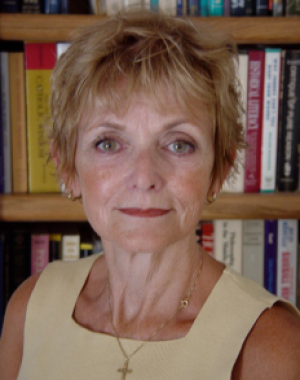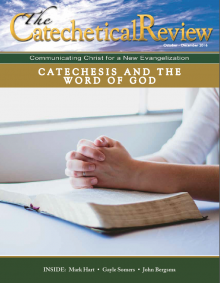People often ask me, an evangelical convert to the Catholic Church twenty years ago, what made me want to become Catholic. Because my husband and I flirted with the idea of conversion over the course of ten years, there are many possible responses. However, it has always been clear to me that there was one event that changed everything for us, overcoming any lingering questions or queasiness we had about such a dramatic decision. A friend gave us a copy of the newly translated English version of the Catechism of the Catholic Church. We read it from cover to cover. Although we had spent all our adult lives reading, studying, and teaching Scripture, as well as theology, we had never seen anything like it. I will never forget the indescribable thrill it was for me to see Scriptures I had known for a very long time interpreted in such a beautiful, profoundly unified, and wise way. It was deeply satisfying, both rationally (“this all makes perfect sense”) and spiritually (“how could God love us this much?”). Its ring of truth was simply irresistible; it closed off all other doors to possible interpretation and practice of Christian faith. We were forced to say to the Church, the Mystical Body of Christ: “To whom shall we go? You have the words of eternal life” (Jn 6:68). Even twenty years later, I still experience the thrill of seeing how the Scripture, Tradition, and Magisterium of the Church all come together when it is time for the faithful to learn and live the truth. I recently had a fresh taste of this when I was asked to speak on the topic of mercy to a women’s retreat in my parish. The ladies attending the retreat wanted to hear something about mercy because Pope Francis has called us all to a Year of Mercy. I share my experience here as an example of how we, as teachers, can ground our work in all the treasures the Church offers us in her role as protector and interpreter of Divine Revelation. Having never taught on this subject before, I had to ask, “Where do I begin?” I found a starting place, and then I was able to follow a path that developed in a rich and wonderful way—first, for me, the catechist, and then, I hope, for those who heard me.
The rest of this online article is available for current Guild members.
This article is from The Catechetical Review (Online Edition ISSN 2379-6324) and may be copied for catechetical purposes only. It may not be reprinted in another published work without the permission of The Catechetical Review by contacting [email protected]


















